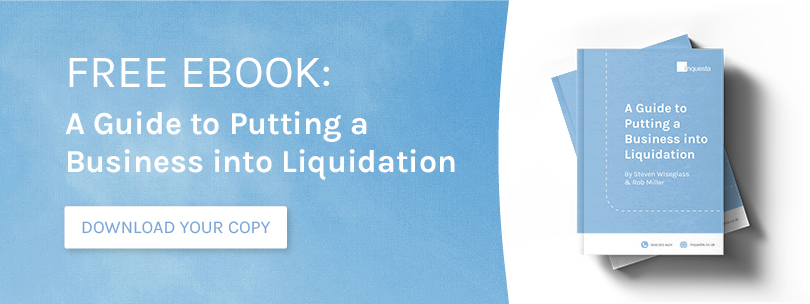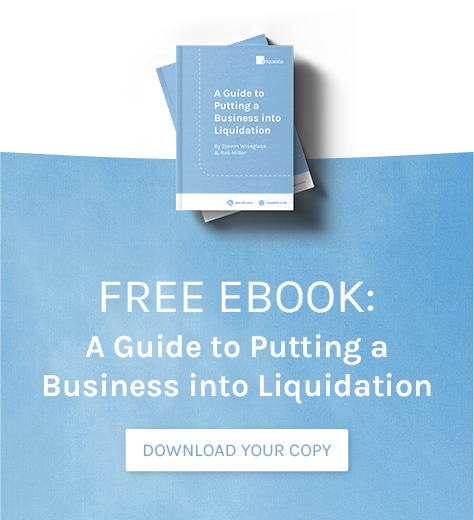If your business is to be as healthy and prosperous as it possibly can, it is essential that it is bringing in more money than is going out. While this may seem obvious, the fact is that a lot of companies simply do not keep an accurate record of their incomings and outgoings.
A lack of cash is one of the main reasons that many small companies go out of business. This is usually because they have been operating without gaining a real understanding of their financial position, meaning they are caught completely unawares when they run into a problem. When trouble does occur, they are often too far gone to be turned around and are ultimately forced to close their doors.
Understanding exactly why it is important to have a cash flow plan in place will help alleviate this risk and alert you to potential problems before they get too serious. At this point, you will also have a lot more options for your business to recover and pull through.
What is a Cash Flow Plan?
Cash flow is the total of how much money is both going in and coming out of your company. A cash flow plan is a method of forecasting the finances of to allow business owners to adequately prepare for the future, and help you stay on the right track for sustained financial success.
The most straightforward way to create a cash flow plan is to draw up annual records in order to determine how much you expect to come in and go out each month. When creating your cash flow plan it is important that you factor in bills such as utilities that may need to be paid quarterly, or insurance payments which are typically taken out on an annual basis.

Examples of cash coming in will be:
- Customer payments
- Bank interest
- Sale of assets
Examples of outgoings would include:
- Rent/mortgage payments
- Utilities
- Business tax
No matter the type, or how frequent, it is vital that you keep an accurate record of any and all payments in and out to determine your company’s liquidity. The more comprehensive your cash flow plan is, the less likely you could run into any nasty surprises down the line. Understanding why it is important to have a cash flow plan is the difference between a good business owner and an excellent one.
The Purpose of Cash Flow Planning
Cash flow planning is intended to ensure that a business has enough money set aside to deal with any potential unexpected expenses. Knowing exactly how much money is available is vital in ensuring that your company is both solvent enough to cope with any and all outgoings, while also avoiding a negative cash flow.
Should your cash flow be negative, it may not take long for things to spiral out of your control. All of a sudden you could find yourself unable to pay your employees, suppliers, or even HMRC tax bills. At this stage your situation can easily snowball, trapping you in increasing financial difficulties until you eventually lose everything you have worked so hard for.

While things like strong sales and increased customer traffic are to be celebrated, a lack of understanding around your incomings and outgoings could result in a dangerous increase in liabilities without you even noticing, until it’s too late.
This is why it is so important that you have a cash flow plan. It allows you to know exactly how much money needs to go out, when it needs to be paid by, and whether your forecasted income will cover the outgoing. If your costs can’t be covered, then at least you know early on that action must be taken.
Accurate financial projections in the form of a cash flow plan should form an important factor in allowing you to make well-informed key business decisions — such as deciding whether to take on additional investment, or looking for opportunities to reduce costs.
The Importance of Cash Flow Planning
In business, cash flow is key. You need cash if you want to be able to pay costs, bills, wages etc. This is why understanding your future cash flow should be a priority for all company owners — to allow you to prepare for any eventuality, protect your business from anything, and ensure that you can make informed, balanced decisions.
Getting your head around why a cash flow plan is important can give you a head start compared to other companies in your sector. When they are putting out fires you, thanks to your diligence and planning are able to continue on with significantly less impact to operations.

From the ability to cope with the unpredictable, to saving money, building a stable platform for growth and more, the importance of a cash flow plan cannot be understated.
Deal with Unexpected Expenses
When running a business there will always be a possibility that unexpected expenses could be on the horizon on any given day that could make it difficult to manoeuvre. A cash flow plan can allow you to be more conscious over your finances and ensure you are in as good a situation as possible should the worst happen. Common unexpected expenses can include:
- Broken machinery/equipment
- Failed inventory delivery
- Late client payment
- Legal matters
- Environmental damage
Identify Potential Savings
Creating a comprehensive cash flow plan will give you essential insight into exactly where you are spending your money, how much you are spending and why. Having a clear indication of your expenditure will help you identify if you are needlessly spending money, thereby cutting costs.
Plan for the Future
Every business wants to grow. Without planning ahead, you risk making your move at the wrong time, having a serious knock-on effect on your finances.
Expanding your operations requires a lot of cash. Hiring new staff, buying more equipment or acquiring additional stock can all require the raising of new funds, which in turn can result in new financial liabilities. Therefore, ensuring these decisions are being made when your business is financially robust becomes essential.
Maintain Relationship with Suppliers
Setting up a cash flow plan can also help you maintain strong relationships with your suppliers. By creating a detailed payment schedule, you can effortlessly ensure that you have the funds available to meet your obligations. If you do not, you run the risk of damaging your company’s reputation and turning your suppliers into creditors.
Mitigate Risk
A business owner puts blood, sweat and tears into their company. Years of late nights and early mornings go into every single successful business. However, a failure to prepare yourself for any eventuality could lead to the company you have built up over the years being snatched from you if you are not careful, in the form of lengthy liquidation proceedings.
An efficient and organised cash flow plan can allow you to get a clearer understanding over your financial situation, this can better protect you from any eventuality and hopefully ensure your continued operation and success.
Important Cash Flow Plan Steps to Consider
It is true that all businesses are different, therefore all cash flow plans will similarly be distinct from each other. However, there are a few key points of consistency that you should factor into your plan. This includes estimates of incomings/outgoings, clear and concise data documents, and eventually, a final number to detail the estimated profitability of your business.

When sitting down to prepare your company cash flow plan at the beginning of the financial year there are a series of important steps you must consider in order to ensure that you are protected against any possible business expense increases in the future. These include:
Estimate Ins
The first step in any cash flow plan is to collate data in order to accurately estimate how much money you expect to bring in over the next 12 month period. To do this, you will need to factor in your estimated revenue, any invoices you expect to receive, any loan advances, and more.
Estimate Outs
The next step in any cash flow plan is to also estimate exactly how much money you expect your company to spend in the next 12 months. To come by this number you should work out any possible business expenses, due loan payments, and an expected wage figure for the following year.
Collate
Once you have estimated figures, you can get into the meat of your plan. You should enter them into a spreadsheet or document that allows you to over time keep a consistent number of your incomings minus your outgoings to get an idea of your cash flow.
Review
Once you have a number, it is important that you review the process. First make sure that the number is accurate. If the final number is negative, it means you are expected to make a loss for the calendar year, whereas a positive number shows that you should be profitable if everything follows the prediction. Should you be at a loss, it would be wise to run a more in-depth review to attempt to establish whether there are any changes to your business that could help get you into the black.
How Inquesta Helps with the Cash Flow Planning Process
If you are a business owner looking to implement a successful cash flow plan, you can rely upon Inquesta to help. We have amassed decades of experience in helping companies large and small shore up their finances and protect themselves from unwanted surprises.
Our expert team can assist with all areas of finance management, from cash flow management to providing an independent review of your accounts. We understand that no two companies are the same, which is why we will gain a thorough understanding of your individual circumstances before recommending a solution that we believe is in your best interests.
For a more detailed breakdown of how Inquesta can help your company, request a free consultation today or contact a member of our team.




